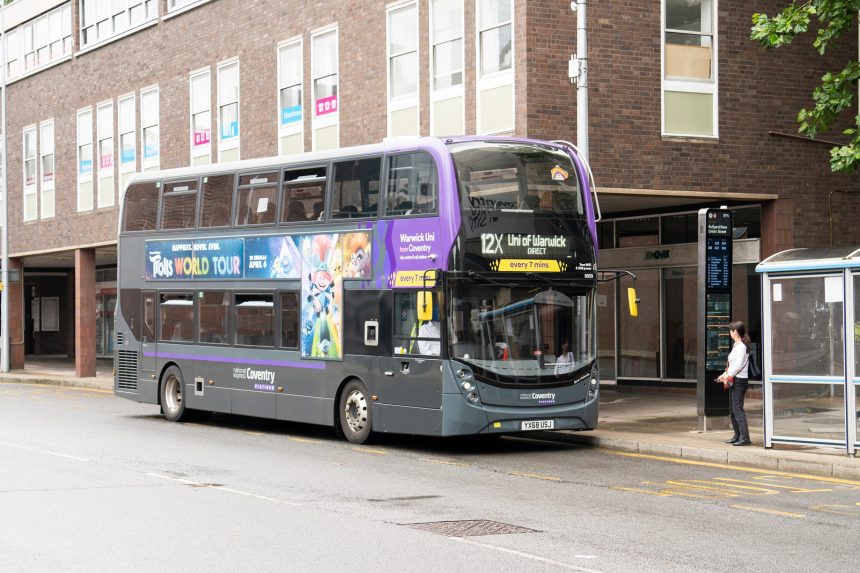Reregulation of bus services in the West Midlands will move to statutory consultation on the proposed draft franchising scheme after approval from the West Midlands Combined Authority (WMCA) Board on 13 December.
The consultation will open on 6 January 2025 and run until 30 March, with the proposed draft franchising scheme and the full franchising assessment to published concurrently.
The latter has identified that franchising is the preferred option for bus reform in the West Midlands. Such an assessment has been developed to be consistent across all options “using only confirmed available funding,” papers laid before the meeting state.
Although the WMCA Board carried the recommendation to progress with the consultation, representatives of some constituent local authorities highlighted concerns with the financial and operational continuity risks that franchising would bring.
Solihull Council Leader Cllr Ian Courts criticised one of the thus far unpublished documents – which he says is 700 pages long – for making “no attempt” to explain the capital or asset deployment that franchising would require and described it as something that “would be massacred in the private sector,” although he notes that service improvements are needed.
Mayor of the West Midlands Richard Parker has made clear that he favours franchising and notes that such a view has been shaped by conversations with members of the public and Chambers of Commerce.
The current bus network in the West Midlands “is failing too many of our people,” Mr Parker adds. In response to concerns raised by some WMCA Board members, he notes that leaders in the conurbation will be addressed by Mayor of Greater Manchester Andy Burnham on the risks that come with franchising and how they have been mitigated.
Transport for West Midlands Director of Integrated Transport Services Pete Bond told the WMCA meeting that as the West Midlands bus network is the UK’s largest outside London, with over 230 million passenger journeys per year, delivering franchising will be a large task requiring significant skills and resource.
The papers circulated before the gathering note that the assessment considers franchising against continuation of the deregulated approach and what extra could be delivered via partnership working with operators.
Although partnership has been successful, the document says that the assessment has concluded that “over the long-term, franchising will provide better value, which is important as the network becomes increasingly reliant on public funding support.”
On partnership, it is stated that such a mechanism “does not provide control levers to the same degree that will ensure… funding is directed at interventions that most effectively support wider policy outcomes.”
SME involvement in any future franchising scheme in the West Midlands will be addressed in the WMCA response to the consultation. It remains to be seen when Mr Parker will decide whether the proposals go ahead.



























